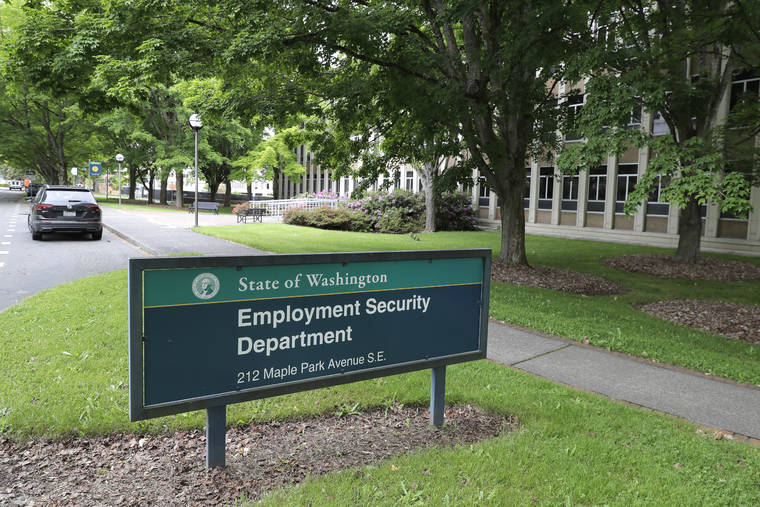OLYMPIA, Wash. — Washington state has recovered $300 million paid to criminals who used stolen personal information to file fraudulent unemployment benefit claims amid the COVID-19 crisis, officials said Thursday.
Employment Security Department Commissioner Suzi LeVine said that she could not yet reveal the precise amount that was paid in fraudulent claims, but said that the initial recovery — including $50 million set to be returned Thursday — was a result of the state’s collaboration with federal law enforcement and financial institutions across the country.
“This is a national attack by sophisticated criminals and isn’t just happening to Washington state,” LeVine said.
LeVine first detailed the scope of the fraud last week, saying that the information of tens of thousands of people in the state was used to fraudulently pay hundreds of millions of dollars in unemployment benefits.
Much of it apparently went to a West African fraud ring using identities stolen in prior data breaches, such as the massive 2017 Equifax breach. Washington is one of several states where attacks have been detected, including New Mexico, Michigan and Montana, according to California cyber security firm Agari, which has monitored the Nigerian fraud group, dubbed Scattered Canary.
The fraudsters had money sent to prepaid debit cards associated with bank accounts, from which they have it transferred internationally or quickly exchanged for bitcoin or gift cards, according to Patrick Peterson, chief executive of Agari.
LeVine said that the state is recovering additional money from some of the victims of the identity theft who contacted officials after they received debit cards with unemployment benefits they didn’t apply for because the the impostor forgot to change the address on the account.
The state saw a significant decrease in initial claims for unemployment benefits last week, something LeVine said is likely due to the extra anti-fraud efforts taken in recent weeks, including delaying payments by up to two days in order to further verify claims.
Nearly 1.5 million claims for benefits — with some of that number reflecting people who filed multiple claims — were filed for the week of May 17-23, and more than $494.5 million was paid last week to 424,995 individual claims.
To date, the state has paid nearly $4.7 billion in benefits to more than 807,000 people, including federal money that is providing the unemployed with an additional $600 a week on top of the state’s weekly maximum benefit of up to $790 per week.
Of the more than 323,000 still awaiting payment, LeVine said that a majority of them are cases where someone has filed an initial application but not a weekly claim, or those who haven’t applied since the federal program made them eligible. About 44,000 people are currently in adjudication, as one or more issues with their application is being investigated.
“We will pay people all the benefits that they are owed,” she said. “At the same time, we need to take these additional precautions to ensure that we’re not sending taxpayer dollars out to the criminals.”
Since March, more than 40 million people nationwide have filed for unemployment aid due to the economic impacts of the coronavirus.
Washington’s stay-at-home order has been in place since March 23 and the state’s unemployment rate jumped to a record 15.4% last month.
Democratic Gov. Jay Inslee announced a four-stage reopening plan earlier this month. He has allowed counties with fewer new cases to apply to move to the second stage, which allows some businesses to reopen, including dine-in restaurants at half capacity. As of Thursday, 26 of the state’s 39 counties have been approved to move into Phase 2.
More than 20,700 people in Washington have tested positive for the coronavirus, and at least 1,106 have died. The virus causes mild to moderate symptoms in most patients, and the vast majority recover. But it is highly contagious and can cause severe illness and death in some patients, particularly the elderly and those with underlying health conditions.
———
AP writer Gene Johnson contributed from Seattle.


